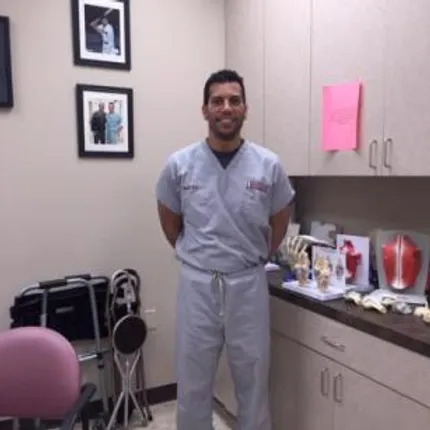Fueling Performance: Dr. James Morales’ Expert Hydration Strategies for Athletes
Fueling Performance: Dr. James Morales’ Expert Hydration Strategies for Athletes
Blog Article

In regards to sports recovery, most people consider bodily therapies: sleep, snow, bodily therapy, and medication. But, a crucial, often neglected aspect of recovery is the intellectual side. Dr. James Morales New Jersey, a renowned activities medicine specialist, stresses that emotional well-being plays an equally important role in healing and performance. In this informative article, we examine the bond between intellectual health and athletic recovery, drawing on Dr. James Moralesextensive experience working together with players across many different disciplines.
The Mind-Body Relationship in Activities Recovery
Dr. Morales describes that the body and brain are delicately related, and one can not fully recover with no other. A player who's emotionally distressed, anxious, or depressed may find it harder to recover from an injury or conduct at their best. Psychological tension may trigger physiological reactions, such as for instance increased muscle pressure and paid off blood movement, that may gradual the therapeutic process. Conversely, good psychological health can improve healing by selling peace, lowering infection, and improving over all bodily health.
The Position of Emotional Resilience
One of the most important emotional traits for athletes dealing with accidents is psychological resilience. Dr. Morales features that resilience—the capacity to bounce right back from challenges and stay focused despite adversity—is crucial to a successful recovery. Players with strong emotional resilience are more prone to stick with their recovery options, adhere with their rehabilitation workouts, and maintain a positive prospect, that subscribe to quicker therapeutic and better efficiency when they return with their sport.
Visualization and Good Thinking
Dr. Morales frequently incorporates emotional training practices such as for example visualization into his recovery plans. Players are taught to mentally rehearse effective movements and healing scenarios. Studies show that visualization may activate exactly the same neural pathways in the mind as physical action, which helps the human body to heal and make for the go back to action. Good considering is still another strong tool. By focusing about what they could do rather than what they can't, players are more likely to stay encouraged, aimed, and committed for their rehabilitation.
Overcoming Emotional Barriers in Injury Healing
Injury healing may be annoying for athletes, particularly people who count on the bodily skills for success. Dr. Morales stresses the significance of approaching mental barriers such as for example fear of re-injury, frustration, and loss in confidence. Players frequently be concerned about time for their sport following an accident, fearing they could perhaps not manage to perform at their previous stage or may possibly reinjure themselves. Addressing these issues through therapy, rest practices, and advice from coaches and health practitioners might help athletes regain their confidence and mental clarity.
The Energy of Social Help
Finally, Dr. Morales challenges the importance of social support during recovery. Bordering oneself with positive, stimulating buddies, household, and teammates can offer emotional energy, lower feelings of isolation, and boost motivation. Dr. Morales frequently encourages his patients to lean on their support program and engage in staff actions or mental health workshops within their healing process. Social communications and party help support athletes remain mentally engaged in their recovery and hold their spirits large as they work toward the full reunite with their sport.
In conclusion, the psychological area of activities recovery is equally as important whilst the physical. Dr. James Morales teaches players that to recuperate fully, they have to address equally their human body and mind. By fostering psychological resilience, training visualization, overcoming mental barriers, and engaging in social support, athletes may enhance their healing method and reunite with their activities tougher and more focused than actually before. As Dr. Morales says, a healthy brain is simply as crucial as a wholesome human anatomy in reaching maximum athletic performance. Report this page